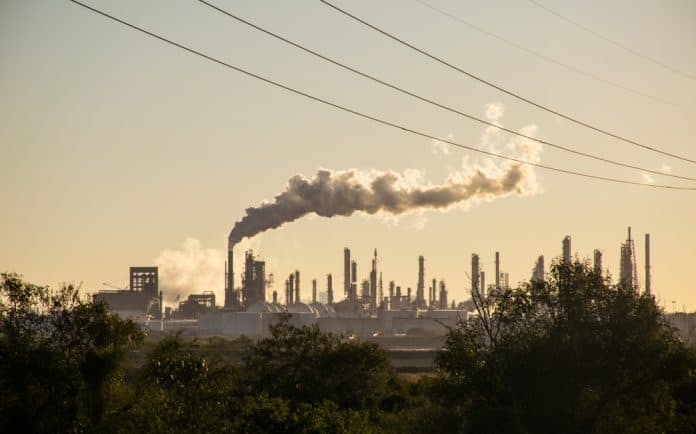U.S. export and import operations are having tough times due to chassis and trucking shortages, unstable vessel schedules, and port, terminals and transshipment port congestion. Being a part of the MTS Logistics export operations team, besides the daily struggles we are going through, I have concerns for the future of operations as we are facing more effects of climate change and global warming.
The U.S. has always experienced hurricanes – they are nothing new. However, the effects of climate change are causing hurricanes to become more dangerous. Hurricane Ida was a good example. Scientists claims that storms like Ida will become more common as the planet warms. Katharine Hayhoe, a prominent climatologist, told CNN that “We’ve always had hurricanes, we’ve always had heat waves, we’ve always had floods and droughts, but what climate change is doing is loading the weather dice against us.” These days, we have Tropical Storm Nicholas, the storm bringing heavy rain to Texas and Louisiana and closing port operations.
The question for the shipping market is how will global warming affect the shipping industry?
According to the World Maritime University, as ice melts around the North Pole due to global warming, sea levels are rising, while coastal erosion is worsening and more sedimentation is occurring. These significant changes have largely impacted ship channels. Re-routing will be a part of future operations as existing routes will be no longer safe. This will create transit time problems for the overall supply chain.
If sea levels rise, this will threaten port infrastructure. Accordingly, in a 2011 survey, several ports did not show optimistic attitudes towards the security of their infrastructure. If the rise of the sea level combines with storms, hurricanes, and floods, this will threaten land operations. Inundation will affect port facilities and supply chains will be affected by the loss of time and in the worst case they will be loosing their products. Those issues will create unplanned costs for suppliers, traders, final consumers and for ports.
Harsh conditions like extended periods of severe weather can lead to prolonged travels and less cost-effective shipping routes. Extreme events of rainfall can delay other essential tasks of shipping, such as the loading and unloading of cargo and shipments when they reach ports.
Due to drought and intensified heat, growing crops becomes more difficult. One article reported that the output of natural produce like soybean, wheat, and corn in Illinois, Iowa, Missouri, and other American states has decreased significantly. Therefore, with fewer goods to transport, there will be less demand for the services of shipping companies.
These effects will not just affect the U.S. It will affect the world.
Those effects are observed all over the world. Ajit Niranjan states in his article that climate change makes the Indian monsoon season stronger and more chaotic. Railways and motorways are closed and some ports are destroyed by heavy floods, which is causing delays on the supply chain.
To summarize, there are more dystopian scenarios about global warming and it’s effects not only on the logistics sector but also in every single area of our lives. On the other hand, as a person who has always hope in her heart, I strongly believe that humankind will find a way to survive and come through all these struggles. This is not only my hope. The shipping industry is well aware of the situation and is taking steps to reduce its carbon footprint using renewable energy sources. IMO 2020, which went into effect on January 1, 2020, is one initiative by the shipping industry limiting the sulphur content of ships’ fuel oil is reduced to 0.50% (from 3.50%.)
Those are promising developments and we hope to see more action including from all industries.




